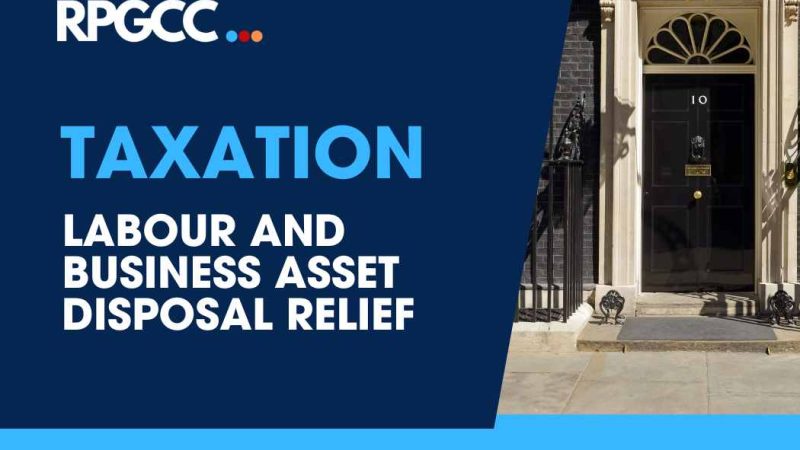For entrepreneurs and small business owners in the UK, Business Asset Disposal Relief (BADR) is a crucial tax relief that can significantly reduce capital gains tax when selling business assets. Previously known as Entrepreneurs’ Relief, this scheme incentivizes investment and entrepreneurship by making it more financially rewarding to sell or transfer businesses.
However, political shifts, such as changes proposed by the Labour Party, may alter the way this relief is applied. In this article, we’ll explore what Business Asset Disposal Relief is, its current rules, and how Labour policies might impact its future.
What Is Business Asset Disposal Relief labour?
The Basics of BADR
Business Asset Disposal Relief allows qualifying business owners to pay a reduced rate of 10% Capital Gains Tax (CGT) when disposing of eligible assets. This is significantly lower than the standard rates of CGT, which can reach up to 20% for higher-rate taxpayers.
Who Can Qualify?
To qualify for BADR, you must meet the following conditions:
- Own the business for at least 2 years before the disposal.
- Be a sole trader, business partner, or shareholder in a company.
- Dispose of qualifying assets, including shares, business premises, or the entire business.
Current Limits
Under the current rules, the lifetime limit for BADR is £1 million, meaning the reduced tax rate applies to gains up to this threshold.
Why Is BADR Important for Entrepreneurs?
BADR provides a financial safety net for entrepreneurs looking to exit their businesses or reinvest in new ventures. It encourages long-term investment in the UK’s business ecosystem by making business disposal less financially burdensome.
Key benefits include:
- Increased returns: Lower tax rates translate into higher profits upon disposal.
- Economic growth: The relief incentivizes entrepreneurship, fostering innovation and job creation.
- Investment opportunities: Entrepreneurs can reinvest their gains into new ventures, boosting the economy.
Labour’s Stance on Business Asset Disposal Relief
Proposed Changes
The Labour Party has historically scrutinized BADR, arguing that it disproportionately benefits wealthier business owners. Some proposals from Labour include:
- Reducing or abolishing BADR: To redirect funds toward public services or broader economic development.
- Revising qualification criteria: Tightening eligibility requirements to ensure fairness and limit misuse.
- Lowering the lifetime limit: Reducing the cap from £1 million to incentivize smaller-scale business sales.
Potential Impact on Entrepreneurs
If Labour were to implement these changes, entrepreneurs could face:
- Higher tax bills: Reduced or abolished BADR would lead to a standard CGT rate of up to 20%.
- Reduced investment incentives: Higher taxes might discourage business creation or expansion.
- Changes in exit strategies: Entrepreneurs might delay sales or explore alternative methods to minimize tax exposure.
Preparing for Potential Changes
Consult a Tax Advisor
Entrepreneurs should work closely with financial advisors to understand how changes to BADR might affect their long-term plans. Professional advice can help mitigate potential tax liabilities.
Plan Your Exit Strategically
If selling a business is on the horizon, consider timing the sale before any changes take effect. This ensures you can take full advantage of the current BADR scheme.
Explore Alternative Reliefs
Other tax reliefs, such as Investor’s Relief, may offer lower tax rates for specific gains. Entrepreneurs should familiarize themselves with these options as part of their financial strategy.
The Broader Economic Perspective
Balancing Fairness and Growth
While Labour’s focus on fairness is commendable, maintaining a balance is critical to ensure policies do not stifle entrepreneurship. BADR has played a pivotal role in the UK’s economic growth by encouraging investment and innovation.
International Competitiveness
Higher taxes could make the UK less attractive to entrepreneurs compared to countries with more favorable tax regimes. Striking a balance is key to preserving the UK’s reputation as a hub for business and innovation.
Conclusion
Business Asset Disposal Relief is a vital tool for UK entrepreneurs, providing significant tax benefits and encouraging business growth. However, the potential for changes under Labour policies introduces uncertainty for business owners planning their exit strategies.
By staying informed, seeking professional advice, and preparing for possible adjustments, entrepreneurs can navigate these changes effectively. While the future of BADR may evolve, its role in supporting entrepreneurship underscores its importance to the UK economy.
FAQs
1.What is Business Asset Disposal Relief?
Business Asset Disposal Relief (formerly Entrepreneurs’ Relief) allows qualifying business owners to pay a reduced 10% Capital Gains Tax on certain disposals.
2.What changes to BADR might Labour propose?
Labour may reduce or abolish BADR, tighten eligibility criteria, or lower the lifetime cap to redirect funds for public spending.
3.How can I qualify for BADR?
You must own the business for at least two years and dispose of eligible assets, such as shares or business premises.
4.What is the current lifetime limit for BADR?
The current lifetime limit is £1 million, allowing you to claim the reduced 10% CGT rate up to this threshold.
5.How should I prepare for potential changes to BADR?
Consult a tax advisor, plan your exit strategically, and explore alternative reliefs to minimize your tax liability.
Also read: SeAH Wind Jobs: Your Guide to Careers in Offshore Wind Energy









